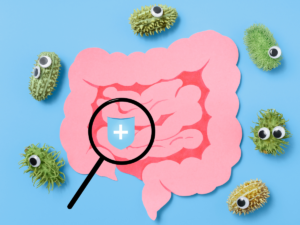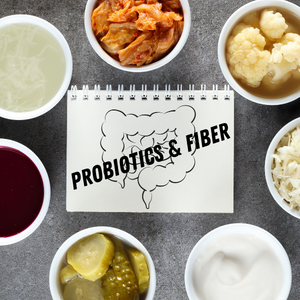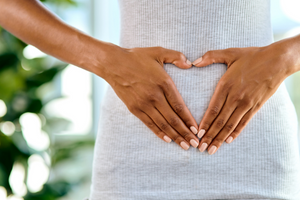Your digestive tract is home to a thriving community of bacteria numbering in the trillions. (significantly more than the number of cells in the body!) Their health impact is remarkable, influencing the way we think, how we feel, and our quality of sleep. Many other health conditions relate to our gut bacteria, too. It seems as though Hippocrates was right when he said, “all disease begins in the gut.”
Within the last 10 years, researchers have become keenly interested in the role of gut microbes and human health. They’ve discovered that the collective microbial community functions more like an organ rather than just a haphazard collection of bacteria. Thousands of species, each having millions of different types of bacteria, make up this collective ‘organ,’ which is responsible for producing essential metabolites that serve to keep us healthy, especially when it comes to our immune system.
Numerous diseases have also been linked to an imbalance in gut bacteria, including asthma, allergies, metabolic syndrome, diabetes, irritable bowel syndrome (IBS), obesity, cardiovascular disease, and colorectal cancer. Therefore, paying close attention to how well our bacterial allies are functioning deep within the gut is likely a worthwhile endeavor.
Keeping Your Bacteria Happy
Our gut needs bacteria in the same way we need food to survive. Although the interactions between gut bacteria are complex, there is one thing we know for sure: they require ample amounts of fiber found in fruits, vegetables, grains, nuts, and seeds! Regardless of whether the fiber is soluble, insoluble, or fermentable, our tiny microbial friends require up to 40 grams of fiber per day to keep us (and them) in the healthiest state possible.

Fiber and Elimination for Gut Health
The title of a popular children’s book sums it up nicely: “Everyone Poops.” Elimination is a natural part of our physiology, even if we don’t like to talk about it. Getting rid of our excess waste should be a daily, comfortable, effortless, and clean experience. We shouldn’t require reading material or need 3 feet of toilet paper to finish the job. The entire process should be as effortless as the elimination.
But for many, maintaining regular bowel habits is a challenge, managed by consuming coffee in the morning, taking magnesium at night, or adding in other herbal products designed to prevent constipation. Without adequate fiber in the diet, which adds bulk to the stool, this can be an ongoing struggle that makes everyone miserable, including your gut bacteria.

How to Get Started on Gut Health
The average American diet includes 12-15 grams of fiber per day as compared to the 30 – 40 grams needed to optimize microbial health and ensure regular elimination. But fair warning: adding in too much fiber too quickly can cause uncomfortable digestive symptoms, including bloating, gas, and even constipation. It’s better to start slowly and increase as tolerated after you see how your body responds to the increased fiber amount.
Our recommendation is to try and obtain your daily fiber intake from real food as compared to taking it in supplement form. There is a time and place for supplemental fiber, as in during a cleanse, but it’s better to incorporate fiber-rich foods as part of your regular diet.
Keeping your intestinal bacteria well-fed and happy requires ongoing attention. However, the payoffs are significant! Having regular elimination and the assurance that your gut microbes are receiving the nutrients they need to keep you healthy is a wonderful feeling!



